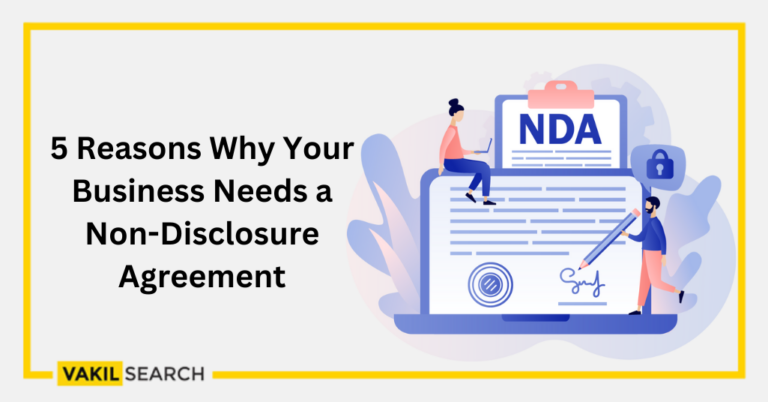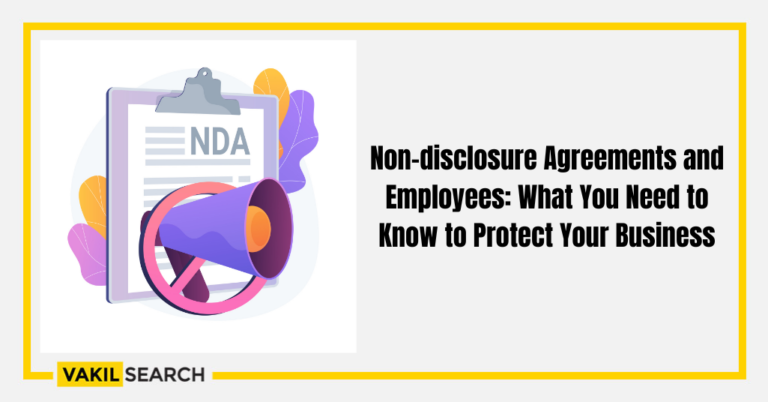Before going for Non-Disclosure Agreements, you must consider the ideas related to information sharing about which information not to disclose to any third party. The short form for a Non-Disclosure Agreement is NDA.
Confidentiality and Non-Disclosure Agreements are known as NDA. It is an agreement between individuals or businesses that promise to treat such information available in this agreement not to disclose in the public domain.
For example, if you want to tie up with a business, then you need to make an agreement, and both parties should agree on the terms where they cannot use or sell their private information written in NDA.
Understand about Confidentiality and Non-Disclosure Agreements
It is not an easy task to make Confidentiality and Non-Disclosure Agreements because you have to include certain terms and conditions, including the private information shared by the parties in this agreement, and sometimes you have to register this agreement with a lawyer. Here you can find some basic things that you can find in such Confidentiality and Non-Disclosure Agreements:
Confidentiality and Non-Disclosure Agreements start with the name and addresses of the receiving and disclosing parties, where they have to read the terms that cannot be disclosed.
Under the definition of confidentiality, parties should mention the information with a tag of confidential in the Confidentiality and Non-Disclosure Agreements. In this case, disclosing party should provide a brief note about communication in a written form and add information to the NDA.
- Exclusions: Some exclusions should be mentioned by the receiving party in these Confidentiality and Non-Disclosure Agreements.
- For example, information of disclosing parties already available in the public domain can be available and receiving party cannot take any responsibility to keep such publicly available information confidential.
- But information of the disclosing party shared by their representative and collected information by the receiving party about disclosing party after signing the NDA should not be disclosed by the receiving party in any form, and they can only share such information with others if they have written consent from the disclosing party.
- According to the Confidentiality and Non-Disclosure Agreements, receiving and disclosing parties should maintain some terms and conditions and have certain responsibilities to keep their information confidential. The receiving party should restrict the access of the confidential information shared by the disclosing party, and they cannot use such information without taking written approval from the disclosing party for their benefit.
- They cannot publish, copy, or disclose such confidential information. Apart from that, receiving party must return all notes, records, and printed and tangible materials to the disclosing party which contain confidential information.
- Confidentiality and Non-Disclosure Agreements are drafted for a certain period, and after this period, disclosing party can send a written notice to the receiving party to terminate their NDA. During this timeframe, receiving party have to maintain the terms and conditions written in the Confidentiality and Non-Disclosure Agreements, and they cannot disclose any trade secrets until they notify the disclosing party in a written form to withdraw this agreement before the timeframe.
- No personal relationship is mentioned in these Confidentiality and Non-Disclosure Agreements, like the employee details, joint ventures, and partner’s details. NDA should be made between the receiving and disclosing party. The name and address should be mentioned in this agreement at the beginning paragraph as “Receiving” and “Disclosing” party only.
- Every NDA is registered under a jurisdiction where the name of the state or court can be mentioned. Any party can lodge a case in the concerned court for violating the terms and conditions written in their agreement. The court can take disciplinary action and termite the NDA or suggest the concerned party change the agreement according to the laws.
- NDA should be made with the complete understanding of the parties, and they should agree with the proposals, agreements, representations, and other terms and conditions written in the NDA. Confidentiality and Non-Disclosure Agreements cannot be amended without the signature of both parties. Get the Format of NDA Online for Business in 2022.
What Is Receiving and Disclosing Party?
In Non-Disclosure Agreements, you can find a disclosing party and a receiving party. A disclosing party is a person disclosing their trade secrets and confidential information to the receiving party. The receiving party should keep such information secret and confidential.
There are some exceptions, where you can mention such parties as unilateral parties. According to this term, both parties mentioned in your agreement or NDA will be treated as disclosing parties. In this case, both parties will have the equal responsibility to keep the trade secret and other confidential information shared by the opposite party secret and private.
You can also mention “mutual” in your agreement and make both parties bilateral. In this case, you need to start your NDA with the below-mentioned paragraph:
NDA or this agreement is made between ____________ (name, address and business name) and ____________(name, address and business name) referred a the parties for the purpose of keeping the confidential information secret and private, by maintaining the following information / terms and conditions. (Here, you need to include the above terms and conditions legally)
Moreover, as you know, each agreement must be signed by the parties with two witnesses. However, witnesses are not mandatory in the case of NDA, but parties can add such references in their agreement for their safety. In this case, witnesses should maintain equal privacy to keep the information shared in the NDA. The Business Agreements are also Connected with MSA Agreement between two Parties.
Why Would You Sign an NDA?
You cannot expand your business without signing such NDA with other businesses. You may think that such agreements are not mandatory for start-ups.
But you can find such agreements in all payment gateways where you must integrate your website to receive the payment online.
Apart from that, you cannot sell your products outside your state without signing such agreements with other companies. You must make several deals with other businesses to manage your cargo, shipments, packaging and supplies. If you fail to mention any point in your agreement, you can lose your business, and the opposite party can take advantage and earn money by selling your business secrets. So, knowing the terms and conditions of such agreements is mandatory for all businesses.
Conclusion:
If you do not have much experience in this domain and save time by preventing such hassles, then you can simply contact Vakilsearch. It is one of the largest legal platforms in India, where you can find all legal aids at competitive prices.
Also, Read:










